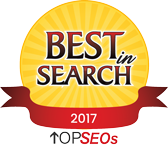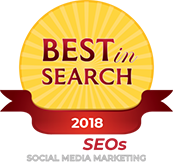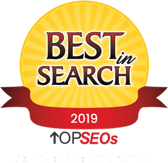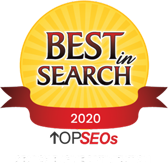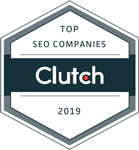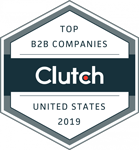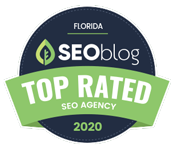
The Benefits of PPC Management for Small Businesses
What is it that makes PPC advertising so important, particularly for small new businesses? Learn how using PPC advertising drives more leads for a small business than does traditional advertising. Find out what methods are required to run a highly efficient PPC ad campaign that produces leads valuable to your business.
Welcome to our comprehensive guide on PPC advertising for small business. It doesn't matter if you're in PPC Advertising tactics or have just started out in the business. In this informative website piece, advertising for small businesses has all been revealed: what is PPC management about what is its importance and why businesses should use it effectively.
What is PPC management for small businesses?
Pay-per-click (PPC) management for small business entails planning, managing, and optimizing paid search and/or display ad campaigns so as to get desired traffic targets from them and secure the highest ROIs. PPP allows small businesses to easily come in touch with potential customers searching actively for their services or products. Unlike organic SEO, PPC gives an immediate visibility."
Business owners running small businesses with limited budgets have a lesser known trackable way to reach new sales leads by the vehicle of PPC for the same purpose. Pay-per-click is named that due to the fact that every click will consume an amount of money. Most PPC platforms are Google Ads, Microsoft ads, and few others such as Facebook ads wherein one can simply get the same desirable keyword for which he wishes to let the campaign run.
For greater impact, an effective PPC management strategy would have to include the following elements: capitalizing on keyword research, achieving high conversion rates in ad copy creation, audience targeting, budgeting, and, finally, monitoring performance. All this without blowing the budget; tools for this are SEMRush and Google Keyword Planner to help you scan competition levels and use high-intent keywords-very useful for maximizing ROI.
An efficient PPC campaign that induces A/B testing in comparing ad creatives and landing pages is built upon successful testing and refinement processes, A/B testing is a testing procedure that compares creatives and landing pages, allowing for comparison in performance, so that improvements can be made over time. For firms wishing to compete with larger brands, professional PPC management renders a higher search rank, but without much difference, instead parallels on grounds of user behaviors, geographic locations, demographics, among others.
Why PPC management for small businesses Matters for Paid Advertising Strategy
Businesses aren't always big popsicles but sometimes tight against stiff competition and need to make every penny count. For a launch campaign that is cost-effective yet delivers measurable results even finer in leads than the traditional marketing efforts, PPC management is a key component in this. Therefore, a big difference is expected in the long run when compared with spending on print or broadcast advertising.
Small businesses have access to PPC campaigns accentuated by tailored targeting options, while online life helps them reach very specific audiences living within the same town. Better, this results in higher quality—more likely to convert into sale or brand engagement. This will continue to be optimized for better pay-as-you-go marketing as small business owners articulate how their paid advertising strategy should be robustly constructed to get more customers.
Think of an example: There could be a local bakery promoting its new gluten-free pastries. Instead of throwing an ad into a newspaper and hoping to make it land on the right eyes, PPC promises to specify delivery of an ad to people within a 10-mile radius who are currently Googling the words "gluten-free bakeries near me." Exact targeting improves visibility and conversion potential.
Another core benefit is the support for other digital marketing initiatives by PPC management. Advertising is fastest in converting traffic, often used to test new products, promotions, or content, while SEO alone can take months. Ideas can be proven or disproven rapidly, such that small businesses can scale what works.
PPC also reinforces its benefits with analytics tools. Google Ads has great Key Performance Indicators like CPC, CTR, Quality Score, and Impression Share, which put small business owners in the thick of data analytics because all these metrics reflect what's yielding for the campaign in terms of performance. For those looking to keep agile learning along with its data approach, PPC is invaluable as key to quick success with short-term measures related with long-term ad strategy deliverables.
In fact, by 2025, PPC management has become more powerful with smarter bid options and AI-enabled ad platforms. For example, Google's performance max campaigns now serve the best creative formats with machine learning across all properties, based on conversion likelihood. Such tools ensure small businesses optimize ad placements while minimizing the labor-load in changes to the campaign.
Knowing how PPC management will benefit the small-business paid ads, in turn, will determine the profitable business outcomes that you could gain. There are real-world examples to be detailed next.
Key strategies to maximize PPC management for small businesses
In making maximum use of PPC management for a small company, it is important to implement a targeted strategy that corresponds to your business goals and budget. Here are several ways that can help small companies get the most out of what they are spending on paid advertising:
- Geo-targeting for Local Reach: Fitting your ads to a local demographic means your small business can connect directly with consumers actively seeking your product or service nearby. Geo-targeting also decimates your budget in that it ensures whatever ad you are creating will not be going to locations that are not meant for the ads.
- Ad Schedule Optimization: One advantage of PPC is having control on when your ads would be displayed. Analyze the peak times your website sees the highest traffic; then, schedule the ads during those precious hours of your business. This means that you will efficiently use your budget, increasing ROI.
- Optimizing Compelling Ad Copy and CTAs: Since compelling copy speaks directly to audience interests, pain points, and needs, it should be part of the strategy. Clear calls-to-action are exhortations for users to take the desired next action after your content click-through or purchase.
- Continuous A/B Testing: Small businesses will want to constantly test varying versions of ads to know that really resonates well. The point of testing is that with the improvement in human iteration over time, the performance will continue to get better.
- Negative Keywords: Preventing your ad budget from going to waste on unqualified leads is accomplished by excluding irrelevant queries using negative keywords. This then goes a long way in only delivering what is most relevant to your audience.
Tools to enhance PPC management for small businesses
Several tools were built in particular to facilitate PPC management for small businesses. They increase efficiency, support insights from data, and advance decision making:
- Google ads: it is the top search ad platform, offering robust ways for keyword targeting, budget control, and performance analytics. Its intuitive interface is perfect for small business owners to manage their campaigns on their own.
- SEMRush or Ubersuggest: they are keyword research tools that will show you exactly where the big words are. Compare them with those that make competitors anxious as they will also help in tracking where the growth in this area might have begun.
- Google Analytics: it should link PPC activities with this analytical tool so a company can monitor user behavior post-click for determining the ROI and tweaking the customer journey to better results.
- Microsoft Ads: Microsoft Ads has formerly been Bing Ads and may provide good competition in the industries where lower CPC rates are sought.
How PPC management supports long-term growth
Unlike organic channels like SEO that can take months to show results: PPC generates near instant visibility. However, a properly planned long term strategy for PPC can do much more than generate immediate traffic; it can ensure consistent long-term business growth, including:
- Data Collection Device: One of the benefits of a PPC Campaign is real-time feedback. The conversion rate, user interest, and behavior provide the needed insight as to what parts of your products and content will help the most.
- Scalable Campaigns: A follow-up to the campaign is the ability to increase PPC management for a small business as the business grows its budget. This is done in stages from market to market, a keyword expansion, and different platforms, yet allows the tracking and governing of spend and performance.
- Brand Recognition: The more consistent the ads appear, the more attention will be given to your brand. Even should they not click right away, the continuous appearance contributes to long-term enablement and credibility, bringing transparency and awareness into the customer capture concept.
Common challenges and solutions in PPC management
Although PPC is greatly beneficial, there arise many pitfalls in the implementation of small businesses. A few of them have been explained as under along with practical solutions.
- Challenge: There is too much competition for keywords.
Solution: Concentrate on long-tail keywords that have lower competition but have high intent so that the keywords may not drive clicks as much but may convert on the lesser expense side. - Challenge: Restricted budget constraints.
Solution: Using budget caps, ads run during the peak hours and optimization for top-performing keywords should be done to make each dollar count. - Challenge: Lack of expertise in campaign management.
Solution: To reduce your manual input while still preserving excellent performance, you can hire a consultant who deals in PPC or subscribe to automobile bidding through Google Ads included on their tools.
Integration with broader paid advertising strategy
Implementing PPC management effectively for small businesses does not occur in a vacuum; instead, it is part of a greater paid advertising strategy that also features social advertising networks, and display campaigns-and perhaps even retargeting:
- Cross-Platform Consistency: Consistency in the messages across various platforms (Google, Facebook, Instagram, etc.) will promote confidence with which the brand is recognized among higher levels of familiarity. A customer, upon n number of instances hearing or witnessing the client's message, channels messages into an increased confidence ratio and commitment to purchase over time.
- Private advertising strategy: Organizations have full control over whom to show ads; maybe display networks or targeting options; unlike display or social media advertising, search ads from such technologies are also found in terms of content.
- In-depth discovery for individualized targeting: Successful advertising can create personal advertisements, and the potential ranges and unique configuration are limitless.
Possibly one of the best actions: As comprehensive paid strategies invariably include PPC, a more effective way is a leveled, results-oriented approach that allows small companies to compete against their larger counterparts on almost equal footing.
Measuring Success: How to Track and Optimize PPC Campaigns
You need to continue working even if you have launched your PPC campaign because things only get started here. Tracking performance and optimizing regularly is of utmost importance to ensure that the investment brings out the value. For most small businesses, PPC management is not simply getting your ads launched but involves constant fine-tuning of the ads to better results in the end.
It would be best to start tracking the most important performance indicators. The first few include click-through rate (CTR), cost per click (CPC), and conversion rate followed by return on ad spend (ROAS). They bring a clear picture of both how the ads are performing and whether the targeting strategies are efficient.
On those platforms, real-time information can be got using Google Ads and Facebook Ads Manager-including information on how well or bad your ads are doing. Further, perform an A/B test comparing different ad copies or landing page designs, etc. Such a structured testing approach would actually show which strategy hits best with your unique audience and budget. Even the simplest change-such as a change in the CTA or just an image update-can deliver noteworthy results if effectively planned.
Common Mistakes to Avoid in PPC Campaigns
Usually, invasive strategies are as much important as their conforming good practices. Thus, one of the most chronic mistakes that small businesses make while involving PPCs are as follows:
- Not defining their goals: Perhaps it is impossible without defined target points to know how it is going.
- Overlooking negative keywords: These actually help sift through unwanted traffic, pushing CTR up while decreasing expenditures.
- Opting for less mobile: Most of the audience comes from mobiles. Make sure your landing pages are mobile-friendly.
- ROI: High impressions and clicks are great, but the real end game is profitable conversions. Invest in ads that build actual business value.
All those mistakes aren't committed so that the campaign acquires sustenance and a minimized ad spend at all ends.
The Long-Term Benefits of a Strong PPC Strategy
Most small business owners are actually interested with the short-dated opportunities that PPC delivers, i.e., instant traffic and instant visibility, yet the real gold lies in the long-term advantages. Fine tuning over a period of time, PPC campaigns build brand awareness, lead generation, and provide working revenue. With this approach, you allow brilliant ideas in your paid ads and learn even more about what you perceive about your ideal customer. This tactic could also be useful in refining other marketing channels and gaining competitive insight.
It goes to the extent that the platforms with advertising products, such as Google Ads, give a chance to run one-of-its-type remarketing campaigns that will help you re-engage people who for whatever reason did not turn into a customer after the first visit to your website. That leads to a highest rate of conversion improvement and brand familiarity-the two key advantages in this crowded digitalization.
Frequently Asked Questions
What is PPC management for small businesses in simple terms?
In simple terms, PPC management is technique or idea used for the improvement of the paid ads advantages by applying specific ordered and thought-out means.
How does PPC management for small businesses help?
Aligning the content with the searches carried out by the public and the best traits become the performance improvement factors.
Can I apply PPC management for small businesses myself?
Absolutely. With the constituents derived from this management and the necessary tools, even people at their beginning can adapt these principles well.
What tools should I use?
Always start process from Google Search Console, SEMrush, any online keyword tools, and from there you can begin to see what is happening with PPC management for small business results.
Next Steps
Request Your Free Digital Marketing Consultation Today!
Ready to Transform Your PPC Strategy?
Promote expert knowledge gained from pilot research and strategy in PPC through scale opportunities to small businesses. Even if you have just started, learn benefits of the paid ads for paying your efforts aimed at overcoming competition impacts at the market.
Let our digital marketing specialists guide your journey toward growth and efficiency. From keyword targeting to ROI analyses, we bring structured, proven PPC solutions customized for your small business.
- Explore Our PPC Management Services
- Get In Touch for Personalized Strategy
- Learn More with Google Ads
- PPC Trends at HubSpot
Request Your Free Digital Marketing Consultation Today!










